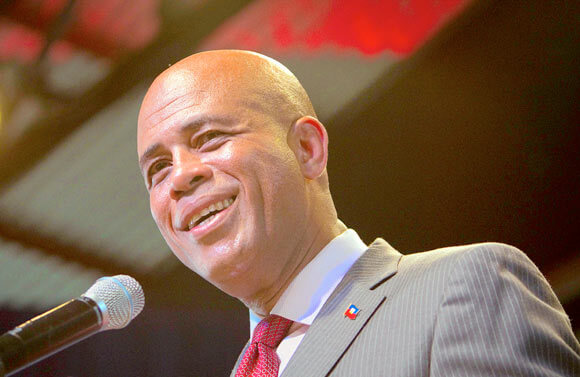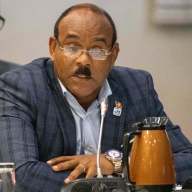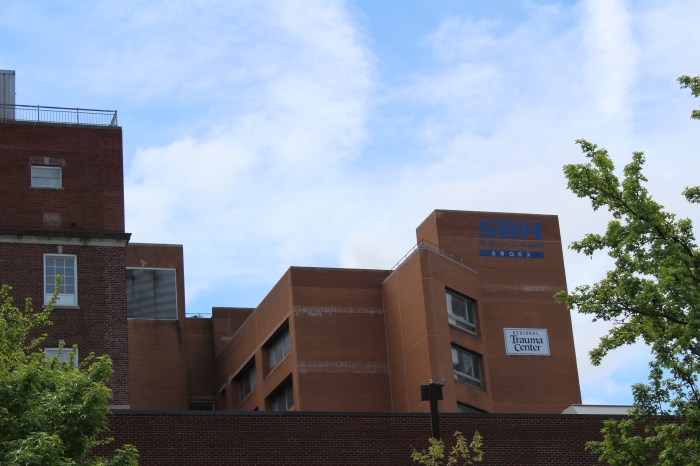With help from the International Organization for Migration (IOM), Haitian President Michel Martelly has launched an ambitious housing initiative in which families are getting US$500 in rental subsidies.
Haitian officials say it is part of a larger program Martelly launched recently to target the Port-au-Prince town square and five other tent cities in the capital, hoping to find a permanent solution to the reconstruction’s most vexing problem – housing.
“We have a plan, we have a vision,” said Patrick Rouzier, the presidential adviser spearheading the housing initiative.
He said that vision revolves around 30,000 people living in six camps from 16 Port-au-Prince neighborhoods, where more than a half-million people remain in tents.
Dubbed “16/6,” the US$98 million project is being funded by foreign donors who are hoping its success will become the blueprint for reconstructing the country.
The plan calls for relocating residents to new homes in rebuilt neighborhoods, while also providing rental subsidies for permanent housing.
“We want to build communities,” Rouzier told reporters. “We may not have solutions for everything, but we are doing concrete projects to implement that vision and we are taking decisions.
“We don’t have the means to rebuild a house for everyone. It’s impossible,” he added.
For now, Rouzier admits that he doesn’t know which of the various financial and housing models will work in Haiti, a country already saddled with land titling issues, substandard housing and a 70 percent unemployment rate even before the Jan. 12, 2010 earthquake.
But, he said, so far, donors are taking notice.
“The use of the neighborhood returns approach, instead of mere camp evictions, is the type of humane approach the United States fully supports,” U.S. Ambassador Jeffrey DeLaurentis told the U.N. Security Council.
Rouzier said foreign builders saw Haiti’s earthquake as an opportunity to start with a clean slate and build solidly constructed houses to replace “Jerri-built” houses, which had dotted the capital.
He said builders, architects and planners organized charrettes, experimental housing schemes and prefab housing proposals. But little permanent housing has been built because of issues with landownership and financing.
The barriers have caused even a housing expo, where 65 model homes are on exhibit, to attract little donor interest.
“There is no one able to tell me how to put water and sanitation in the houses in the compound because there is no money,” said Leslie Voltaire, an urban planner.
Voltaire said he remains hopeful that the government will use the best designed prototypes for future homes.
Observers say Martelly’s plan is taking shape just as the law that created the Interim Haiti Recovery Commission is set to expire within days.
“Land is really a big issue. It cost a huge hesitation on the part of donors to go to permanent construction,” said Priscilla Phelps, housing section leader with the Interim Haiti Recovery Commission. “So the money got channeled into temporary solutions.”
Phelps said the focus should now be on building a sustainable system that’s affordable, provides credit, promotes quality construction and adheres to strong building codes.
“Do we want to inject resources into the market and then work on ways money gets spent, or build a small group of really nice houses for certain people and we still have people in camps? There is just not enough money to replicate some of the things some of the donors are proposing,’’ she said.
Jean-Christophe Adrian with U.N. Habitat in Haiti, said 20 months after the quake it is time for Haiti to start taking permanent housing solutions because the temporary can no longer be justified.
“Unless the government says ‘We’re starting reconstruction,’ people don’t know that now it’s going to happen and that temporary solutions are over and we’re going to work on permanent solutions,’’ he said. “There has been a lot of work done, proposal options have been presented, but you need a government.’’
Haiti’s failure to adopt a national housing resettlement and reintegration strategy “stands as the most glaring failure of the past year,’’ said Mark Schneider, senior vice president of the International Crisis Group, which has called on Haitians and donors to make resettlement a humanitarian priority.
Meanwhile, frustrated by the camps, some mayors and land owners are turning to evictions.
In Petionville, Mayor Claire Lydie Parent opted against evictions, using US$10,000 in carnival money to relocate 200 families. Martelly’s initiative builds on her program.
But Adrian said while he views “16/6” “as the beginning of the answer to the housing crisis,” Haiti still must address the issue of rebuilding rentals to accommodate the majority of people in the camps who are poor, unemployed and have no interest in homeownership.

















